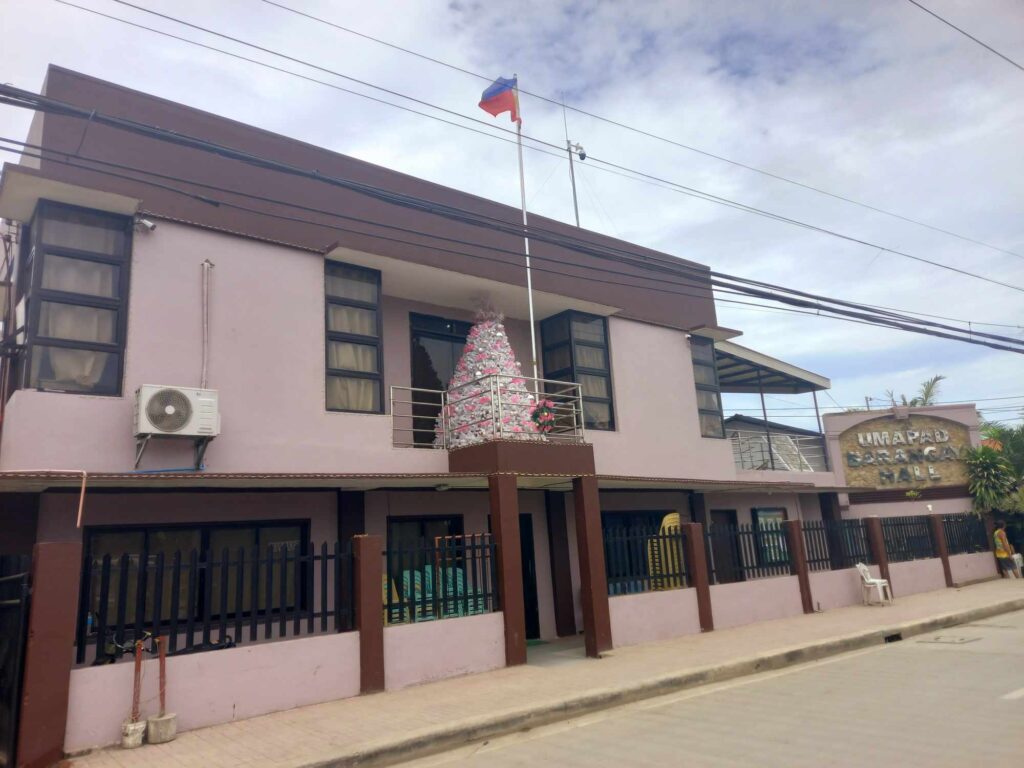
Hanbok PJs, retro shoes and charcoal scents: Jaju gets a Korean makeover Published: 11 Dec. 2024, 16:56 KIM JU-YEON [email protected] Apparel and household goods retailer Jaju is holding a pop-up event in Buckchon Hanok Village, a neighborhood in Jung District, central Seoul, to showcase its upcoming products for the 2025 season as part of its rebrand to become more aesthetically “Korean.” The exhibition space is open from Wednesday through Saturday.
[SHINSEGAE INTERNATIONAL] In the courtyard of a traditional Korean home in a quiet residential neighborhood of central Seoul, mannequins are clad in minimalist designs that recall the city's past. The apparel features textile patterns dotted with regional motifs like charcoal, chestnuts and bean pods, with shapes evoking the silhouette of hanbok , or traditional Korean dress. Some wear rain-friendly gomusin — rubber shoes with a pointed tip that were popular in the 20th century.

“These will become Korea's Crocs,” an excited staff member quips. Related Article JAJU continues quiet battle with Muji Forget fitted, loose unisex fashion is here to stay Shinsegae Inc. reports record revenue, consensus-beating profit Inside the two-story house is a large table of kitchenware, sporting plates inspired by dojagi (Korean pottery).
Upstairs, rooms showcase scented products from soap that looks like meju (soybean blocks) and perfumes with charcoal, pine and tangerine scents to textiles, office supplies and even kitchen detergent. Jaju will launch a new line of kitchen detergent and fruit and vegetable wash next year. Its products are shown on the second floor of its pop-up event that runs through Saturday.
[KIM JU-YEON] The clothing and goods are new offerings from Jaju, a Korean household and apparel brand that is rebranding itself to become more, well, Korean. The Shinsegae International-hosted pop-up event, open to the public Wednesday through Saturday, showcases Jaju’s 2025 lineup, including its upcoming SS25 fashion collection, at a hanok (traditional Korean house) in the historical Bukchon Hanok Village — complimenting the brand's new Korean edge. Jaju’s household consumer goods, like cushions and office supplies, for the 2025 season are showcased at the retailer’s pop-up event.
[SHINSEGAE INTERNATIONAL] Jaju is well-known for its minimalist designs — clean lines, muted colors and no flashy logos — akin to those of Japanese brand Muji or Sweden’s Ikea, sans the furniture. It sells clothing , accessories and perfume as well as household consumer goods like kitchenware, duvet covers and soap . But this year, the brand plans to incorporate “more Korean elements” across its designs and goods, according to Shinsegae International.
While the brand previously aimed to provide “necessary” goods to its customers, 2025 will mark a pivot to convenience, stylish designs and efficiency with a Korean twist, its owner said. This means weaving design inspirations from traditional Korean materials and architecture into apparel and textiles as well as adding regional specialties to its perfume scents. Jaju’s apparel at its pop-up space in Bukchon Hanok Village [KIM JU-YEON] “The clothes cut off the body at a 7:3 ratio to take after the hanbok silhouette and use single bow knots like hanbok,” said department head Lee Hye-mi, who was involved in designing Jaju’s SS25 apparel.
“The striped patterns were inspired by the vertical lines on hanok’s roof beams, while the checkered patterns come from the wooden grid lines on hanok windows.” That’s the reason why Jaju is now using bolder patterns colors in its aesthetics — albeit still mostly neutral colors, like navy and olive green — unlike the more muted designs of the past, and incorporating packaging inspired by the county’s natural environment, with materials such as hemp and wood. Jaju hopes the new look will set it apart from competing lifestyle brands within the domestic market, many of which are overseas players like Muji, Ikea and Flying Tiger.
Jaju says it specifically developed products that reflect lifestyles within Korea, such as making kitchen utensils that are convenient to use to cook meal kits or eat delivery food, both of which are widely consumed in the country. Jaju’s scented soap shaped like meju (soybean block) [KIM JU-YEON] None of the items shown at the space, however, can be bought on-site; most will not hit the market until next year. Visitors can, instead, scan QR codes stuck around the house to visit Jaju's website for details about individual items including their release dates.
Jaju sells its products at supermarket chain Emart , also under the Shinsegae Group’s umbrella, online and at branches in the greater Seoul area. “The rebrand was aimed at making the customers’ lives more convenient and fuller,” a Jaju spokesperson said. “We will become Korea’s representative lifestyle brand by using the most Korean elements.
” BY KIM JU-YEON [ [email protected] ] var admarutag = admarutag || {} admarutag.cmd = admarutag.cmd || [] admarutag.
cmd.push(function () { admarutag.pageview('3bf9fc17-6e70-4776-9d65-ca3bb0c17cb7'); });.










